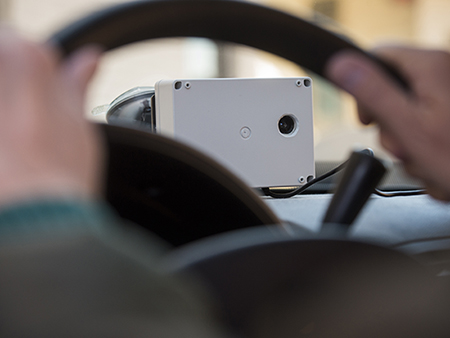Media contact: Alicia Rohan
 Investigators at the University of Alabama at Birmingham are looking for participants with Attention Deficit Hyperactivity Disorder or autism spectrum disorder to understand the challenges they face while driving. The study is part of a new collaboration between UAB’s Translational Research and Injury Prevention laboratory and the Cognition, Brain, and Autism Laboratory.
Investigators at the University of Alabama at Birmingham are looking for participants with Attention Deficit Hyperactivity Disorder or autism spectrum disorder to understand the challenges they face while driving. The study is part of a new collaboration between UAB’s Translational Research and Injury Prevention laboratory and the Cognition, Brain, and Autism Laboratory.
“The focus of our research is the prevention and control of unintentional injuries, particularly those resulting from motor vehicle crashes,” said Despina Stavrinos, Ph.D., associate professor in the College of Arts and Sciences’ Department of Psychology. “We are conducting this study to learn more about how young drivers with ASD and/or ADHD navigate complex roadway environments in an effort to promote traffic safety for these vulnerable road users.”
Rajesh Kana, Ph.D., adjunct professor in the College of Arts and Sciences’ Department of Psychology says driving is one of those skills that has a key role in our quality of life. Drivers who have autism face a lot of challenges at the cognitive and behavioral levels.
“Our TRANSIT study examines the brain and cognitive mechanisms behind driving in adults with autism spectrum disorders,” Kana said. “The findings of this project will provide crucial insight into better understanding and in improving driving performance in autism."
Researchers are seeking drivers between the ages of 16 to 30 years old. Participants must have a valid driver’s license, be a healthy volunteer or have a diagnosis of autism spectrum disorder or attention deficit/hyperactivity disorder.
|
“Our TRANSIT study examines the brain and cognitive mechanisms behind driving in adults with autism spectrum disorders. The findings of this project will provide crucial insight into better understanding and in improving driving performance in autism." |
Each participant can earn up to $200 in compensation.
Participants will answer online questionnaires and engage in two sessions: driving simulator and cognitive testing, and functional brain imaging. Knowledge about strategies drivers use to detect hazards may inform future intervention development.
For more information or to enroll in the study, contact the UAB TRIP Lab at 205-975-9440 or visit triplaboratory.com